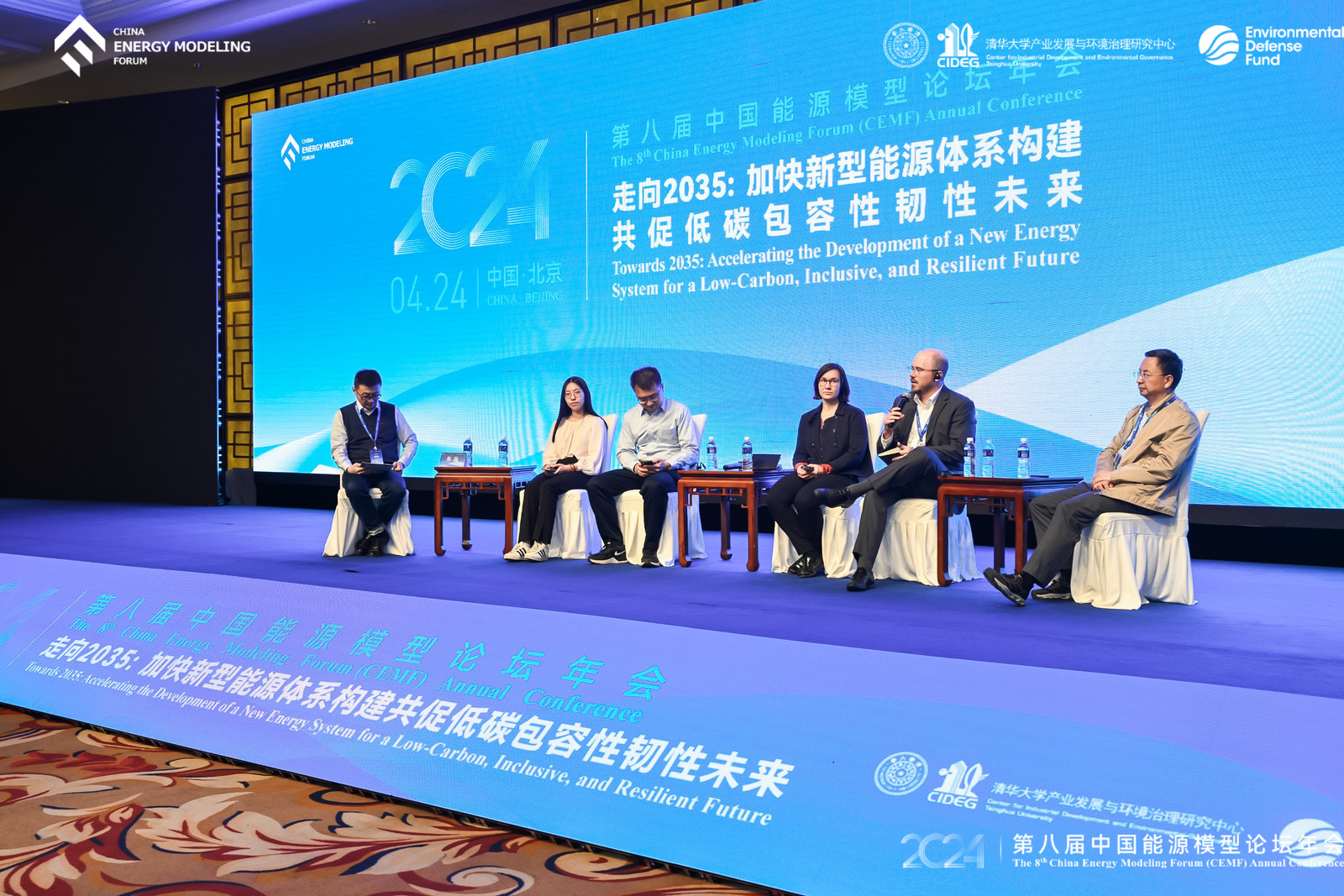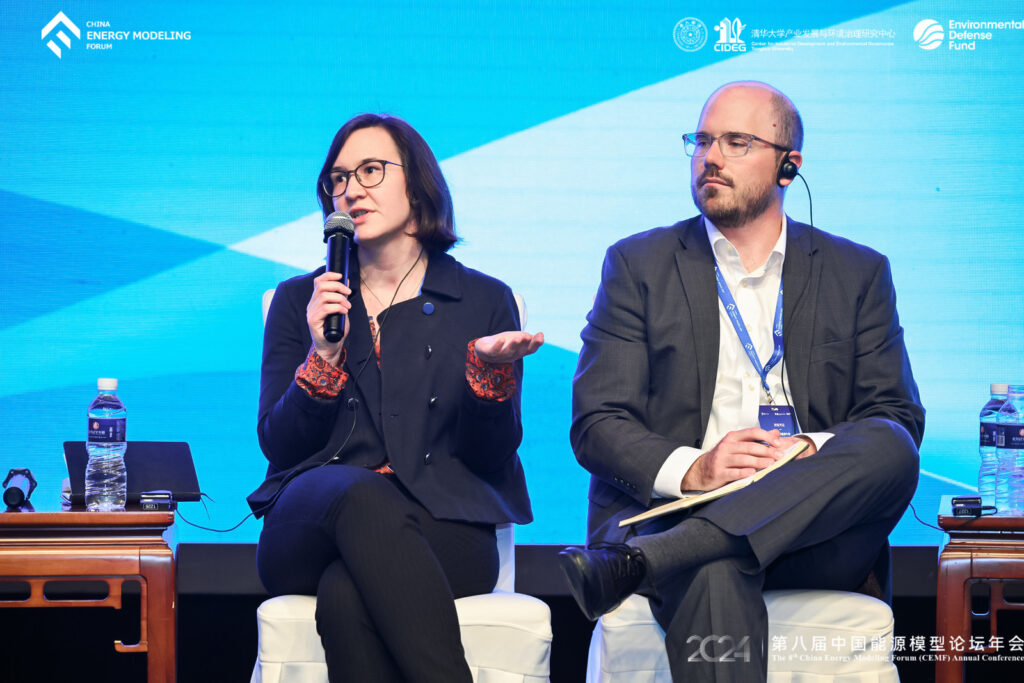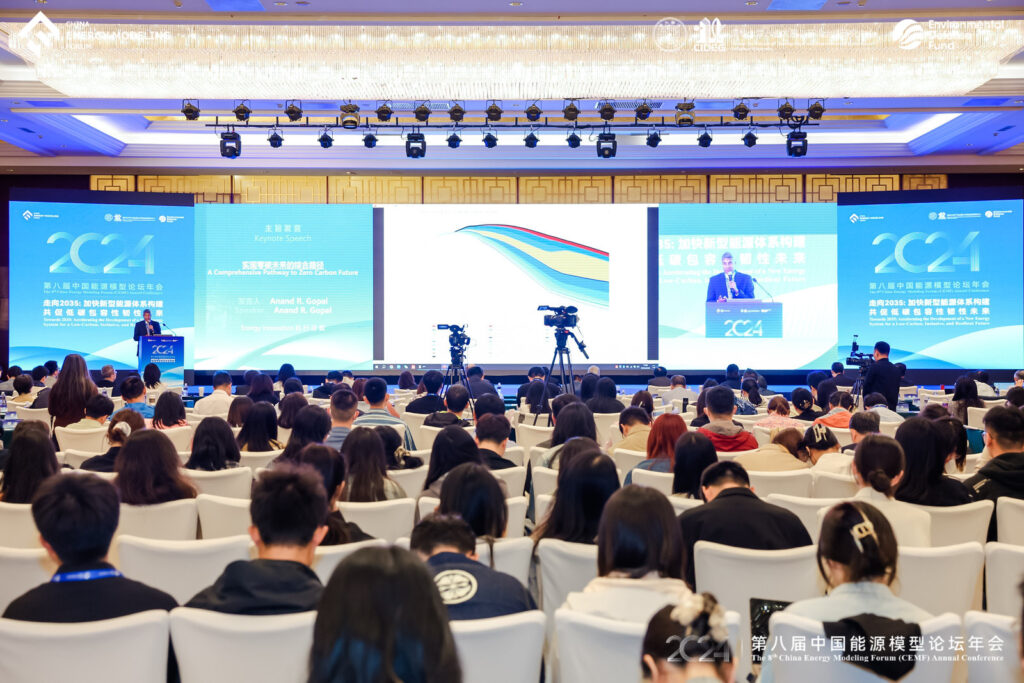

On April 24, 2024, the 8th China Energy Modeling Forum (CEMF) with the theme “Towards 2035: Accelerating the Development of a New Energy System for a Low Carbon, Inclusive, and Resilient Future” was hosted in Beijing. Established in 2015 by Tsinghua University’s School of Public Policy and Management (SPPM), the Center for Industrial Development and Environmental Governance (CIDEG), and the Environmental Defence Fund (EDF), the CEMF brings together experts in energy, economics, and environmental studies.
The forum aims to advance modelling methodologies, encourage collaboration among domestic and international teams, and enhance model development capabilities. This year’s event attracted over 800 attendees and gained significant attention on social media with 40,000 views, indicating the growing interest in energy modelling in China.
In the afternoon session on “New Power System Modeling and International Comparison of Multi-Regional Models”, Helena Uhde was invited to give an introduction to Balmorel and share the work of Ea Energy Analyses with the model in China.


Ea Energy Analyses has been actively involved in supporting energy systems analyses and capacity building for policy and strategy in China since 2009. Ea provides the modelling backbone to the Balmorel model variant EDO, which is utilized by the Energy Research Institute of the NDRC for policy analysis and decision-making. This collaboration is highlighted in key annual publications such as the “China Renewable Energy Outlook” (2016-2020) and the ongoing “China Energy Transformation Outlook” (since 2022).
Together with the key stakeholders State Grid Research Institute (SGERI) and China Electricity Council (CEC), Ea Energy Analyses provided three flagship reports for the EU-China Energy Cooperation Platform (ECECP), building an ENTSO-E Grid Planning Modelling Showcase for China and assessing the impact of an integrated system approach on achieving carbon neutrality targets.
In 2024, Ea has started a new project in collaboration with Beijing Institute of Technology’s Center for Energy and Environmental Policy Research (BIT-CEEP), to support the decision-making process related to the 15th five-year plan (FYP) for the power sector in China’s Guizhou province towards installing more renewables and less fossil-fired generation capacity.

Find information about one of our projects in Türkiye here.